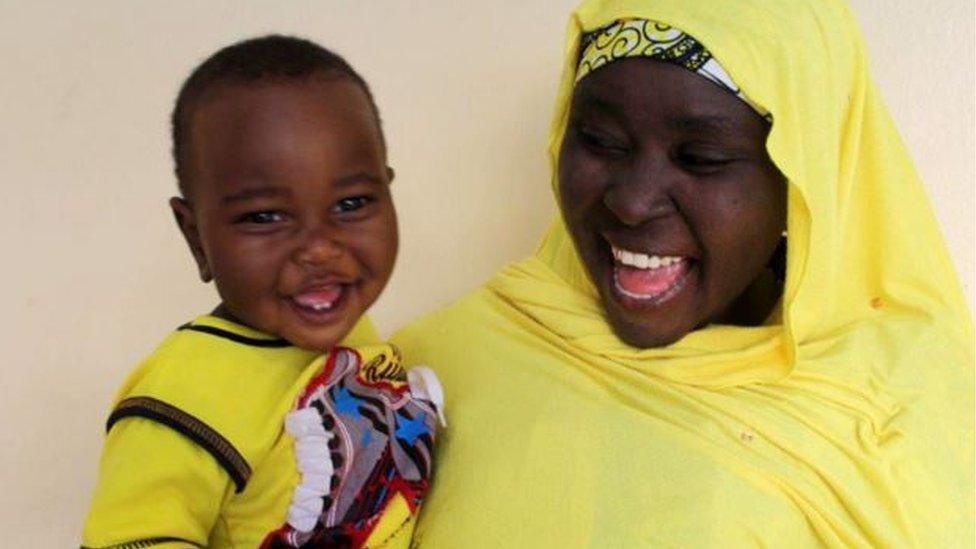UK aid watchdog recommends more direct cash transfers
- Published

Pregnant women and mothers of children under the age of 2 are among those who can benefit from cash transfers in Nigeria
Ministers are being encouraged to expand a scheme which transfers UK aid money directly to those living in poverty in the developing world.
The Independent Commission for Aid Impact (ICAI) says cash transfers are a "proven method" of helping the world's poorest.
The watchdog has recommended the ôÈ200m programme be scaled up.
The Department for International Development said cash transfers achieved "value for taxpayers' money".
The report from the ICAI said there was strong evidence that making small cash payments to targeted households helped them buy basic food and amenities and could encourage people to save money.
It added that there was no evidence the cash was spent on alcohol or gambling.
The Department for International Development (DfID) spends ôÈ201m a year on so-called "cash transfers" to vulnerable individuals - but the policy has come under attack in the press.
The Daily Mail newspaper recently claimed cash-transfer programmes funded by UK taxpayers resulted in money .
Conservative MP Nigel Evans told the newspaper it looked like the UK was "exporting dole".
But Commons International Development Committee chairman Stephen Twigg said that "contrary to recent coverage" the report proved "cash transfers are an effective means of development".
According to DfID, UK support is currently reaching 154,000 Ugandan senior citizens
The ICAI acknowledged that some of the programmes funded by the UK had experienced teething problems.
In Nigeria, for example, workers on a project giving cash to vulnerable expectant mothers had to introduce random pregnancy tests after some women who weren't pregnant joined the scheme.
But the commission said DfID "should consider scaling up its financial contributions" where there was evidence of support from national governments.
The department has a target of reaching six million people a year through the schemes, including programmes targeting pregnant women and new mothers in Nigeria, elderly people in Uganda and parents in Pakistan who receive payments if their children attend school.
'Cut out the middle man'
Oxfam's head of UK policy Tim Livesey said the report confirmed what many in the sector already knew, that cash payments could be "one of the best, fastest and safest ways to help people".
A DfID spokesman said: "Cash transfers get aid to those who need it, when they need it, and achieve value for taxpayers' money - and this independent report recognises that.
"Small cash transfers can be the difference between food and no food for families who are living on less than two dollars a day. They empower people to make decisions about what they need, cut out the middle man, and reduce waste."
- Published7 January 2017
- Published21 November 2016